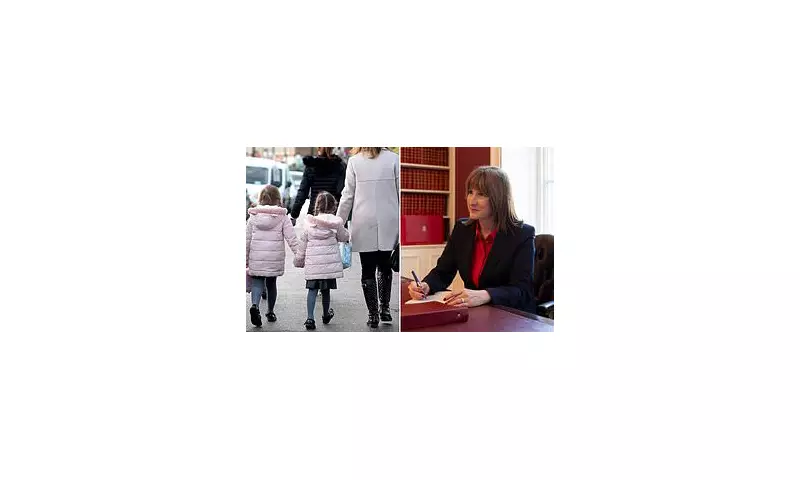
Chancellor Rachel Reeves is set to unveil a contentious Budget today, announcing significant tax increases to fund substantial benefit handouts for Britain's biggest jobless families. The move, which blames economic woes on the Conservatives, Brexit, and Donald Trump's tariffs, is expected to raise around £25 billion in taxes.
Major Shake-Up for Child Benefits
The Chancellor's flagship plan involves scrapping the two-child benefit cap, a policy that limits means-tested benefits like Universal Credit to the first two children in a family. Official figures from the Department for Work and Pensions reveal this change will cost £3.5 billion a year.
According to the DWP, 470,000 families are currently affected by the cap. Of these, nearly 200,000 households have no one in work, while 59 per cent contain at least one working adult. The policy change will be particularly impactful for the 18,260 families with six or more children, who are in line for a windfall of more than £14,000 a year each.
Work Incentives and the Growing Welfare Bill
The decision has ignited a fierce debate over work incentives and the spiralling cost of welfare. Analysis by the Adam Smith Institute finds that the average earner will see almost £2,000 of their taxes go towards the benefits bill this year.
A concrete example highlights the potential shift: a single parent with three children could see their eligible support jump from £20,978 to £24,491 once the cap is lifted. This figure surpasses the £21,807 take-home pay of someone working a 40-hour week on the minimum wage.
Tory policy chief Neil O'Brien criticised the move, stating it "blows a hole in her argument that she has no choice but to raise taxes" and shows she is "quite happy to raise taxes to spend billions more on benefits." Meanwhile, Tory welfare chief Helen Whately warned that scrapping the cap could give some large families "another incentive to sign on for sickness benefits."
The Wider Tax Burden
The Adam Smith Institute's analysis further breaks down the tax burden for the median earner. A worker on a salary of £39,039 will contribute over £1,000 towards the NHS and another £659 on debt interest payments this year alone.
While critics of the two-child cap argue it unfairly penalises children and has worsened child poverty, the government's reversal marks a major victory for Labour MPs for whom its removal was an article of faith. The Budget sets the stage for a significant redistribution of resources, placing the funding of the welfare state squarely at the centre of the UK's economic debate.





